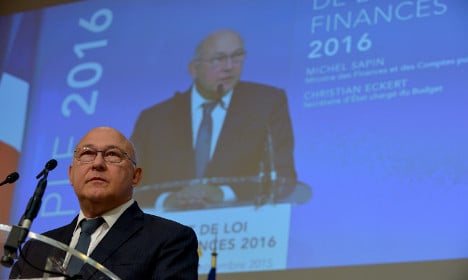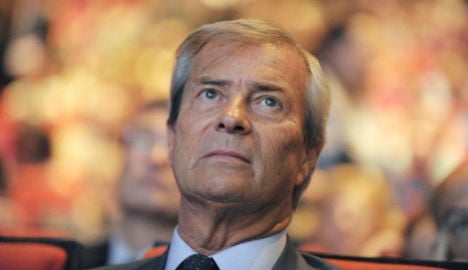The French government unveiled its 2016 budget on Wednesday with a plan to reduce taxes while also cutting its public deficit, with an eye on the presidential election the year after.
Here are some of the key figures.
January 1st 2018
This is the date when income taxes will begin being deducted at source in France. That means workers will see the taxes deducted straight out of their wages at the end of each month, rather than waiting to make an annual declaration.
But the foundations for this move will be laid in 2016, with the government forcing tax payers to make their declarations online. In 2016 anyone earning over €40,000 a year will be forced to declare online and the threshold will move down to €27,000 in 2017 and €15,000 in 2018.
€2 billion cut in income taxes
Income tax will be cut by two billion euros ($2.23 billion) in 2016, in line with President Francois Hollande's promise last month to cut taxes “whatever happens”.
This reduction will affect around three million of the more worse-off households, who did not benefit from tax cuts in 2015. The cut will see around one million households completely exempt from paying taxes.
A move no doubt partly motivated by the upcoming regional elections as well as the looming 2017 presidential election.
€16 billion savings
Under pressure to cut its deficit France’s finance chief announced there would be spending cuts of around €16 billion in 2016. As much as €5.1 billion of that total will be made of up cuts by government ministries. The budget for local authorities will be chopped by €3.5 billion, which is unlikely to please local mayors.
8,300 more civil servants
Many would argue that France already has enough civil servants but the government has announced it will create another 8,304 posts in the public service in 2016.
Many of these posts will be at the ministry of defense, as well as in education, justice and in the police and gendarmerie. However ironically the finance and economy ministries at Bercy will see 2,500 posts cut.
1.5 percent growth
That’s the figure the French government forecasts the economy to grow by next year. The figure is seen as “cautious” with the government really hoping to surpass it.
3.3 percent deficit
Paris has long been under pressure from Brussels to cut the public deficit and Finance Minister Michel Sapin has vowed to bring it down from 3.8 percent of GDP this year to 3.3 percent in 2016. In 2017 it will be reduced further to 2.7 percent.
Debt to reach 96.5 percent of GDP
Despite the cost cutting public debt is set to rise in 2016 to reach 96.5 percent of GDP. “The level of debt will stabilise below 100 percent of GDP in 2016, before progressively receding,” said Michel Sapin.
€2.4 billion tax receipts from tax cheats
Thanks to French tax cheats who have been owning up to hiding away their money from the French tax man state coffers will be boosted to the tune of €2.4 billion next year.



 Please whitelist us to continue reading.
Please whitelist us to continue reading.
Member comments